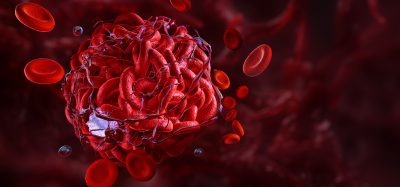Potential indicator for the early detection of dementias
Posted: 9 August 2018 | Drug Target Review | No comments yet
A team of neuropathologists worked together to show that the impairments affecting mitochondria also affect neighbouring organelles…


A team of scientists have found that a cytokine, that is induced by particular factors, could support the early detection of neurodegenerative diseases such as Alzheimer’s and Parkinson’s.
Researchers at the University of Basel have discovered the cytokine to be induced by cellular stress reactions after disturbances to the mitochondria, the powerhouse of the cell.
The ordinary functioning of human cells is based on the precise interactions between the cellular membrane bound organelles, such as the endoplasmic reticulum, nucleus and the Golgi apparatus. Impaired communication between these organelles leads to the activation of a stress response to ensure the affected cells survive. The research groups demonstrated these actions in detail for brain neurons.
The team, led by Professor Stephen Frank from the Institute of Medical Genetics and Pathology at the University of Basel and University Hospital of Basel in Switzerland, along with involvement from the University of Cambridge, UK, and the University of Padova, Italy.
A team of neuropathologists worked together to show the impairments affecting mitochondria also affect neighbouring organelles.
The team found that a consecutively activated stress reaction leads to the release of fibroblast growth factor-21 (FGF21) by nerve cells with disturbed mitochondria. The Basel researchers also observed that the same substance is also induced in various models of neurodegenerative disorders, and so could potentially be detected prior to neuronal cell death.
Chronic cell stress is an important factor in the development of neurodegenerative disease, FGF21 may possibly be suitable as a biomarker for the ‘pre-symptomatic’ detection of neurodegenerative diseases, such as Parkinson’s or Alzheimer’s.
However, FGF21 can also be produced by other tissues and organs, such as the liver and adipose tissue, and thus further testing is necessary.
Should a robust biomarker become available, many people over the world will benefit, and it would represent important progression in the development of novel approaches targeting chronic cell stress to provide neuroprotection.
The study was published in the journal Cell Reports.
Related topics
Biomarkers, Disease Research, Research & Development, Screening
Related conditions
Alzheimer’s disease, Dementia, Parkinson's disease
Related organisations
University of Basel, University of Cambridge, University of Padova
Related people
Professor Stephen Frank








